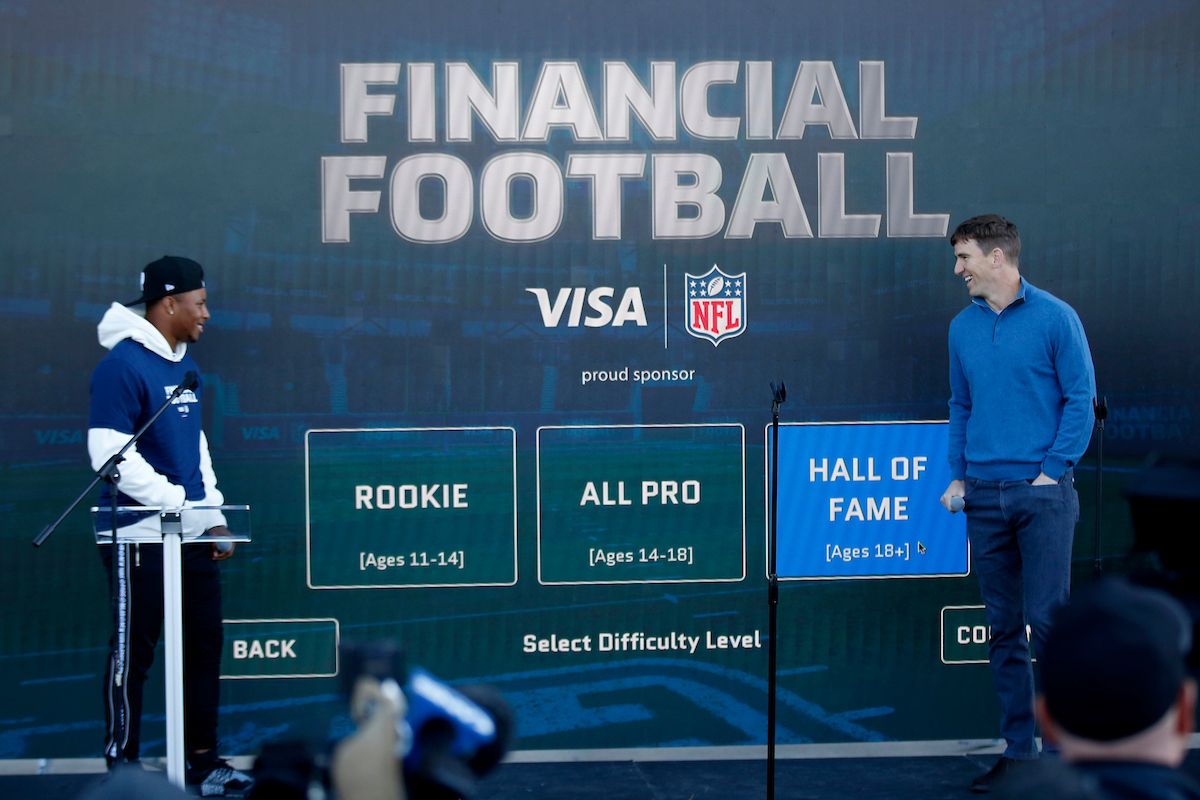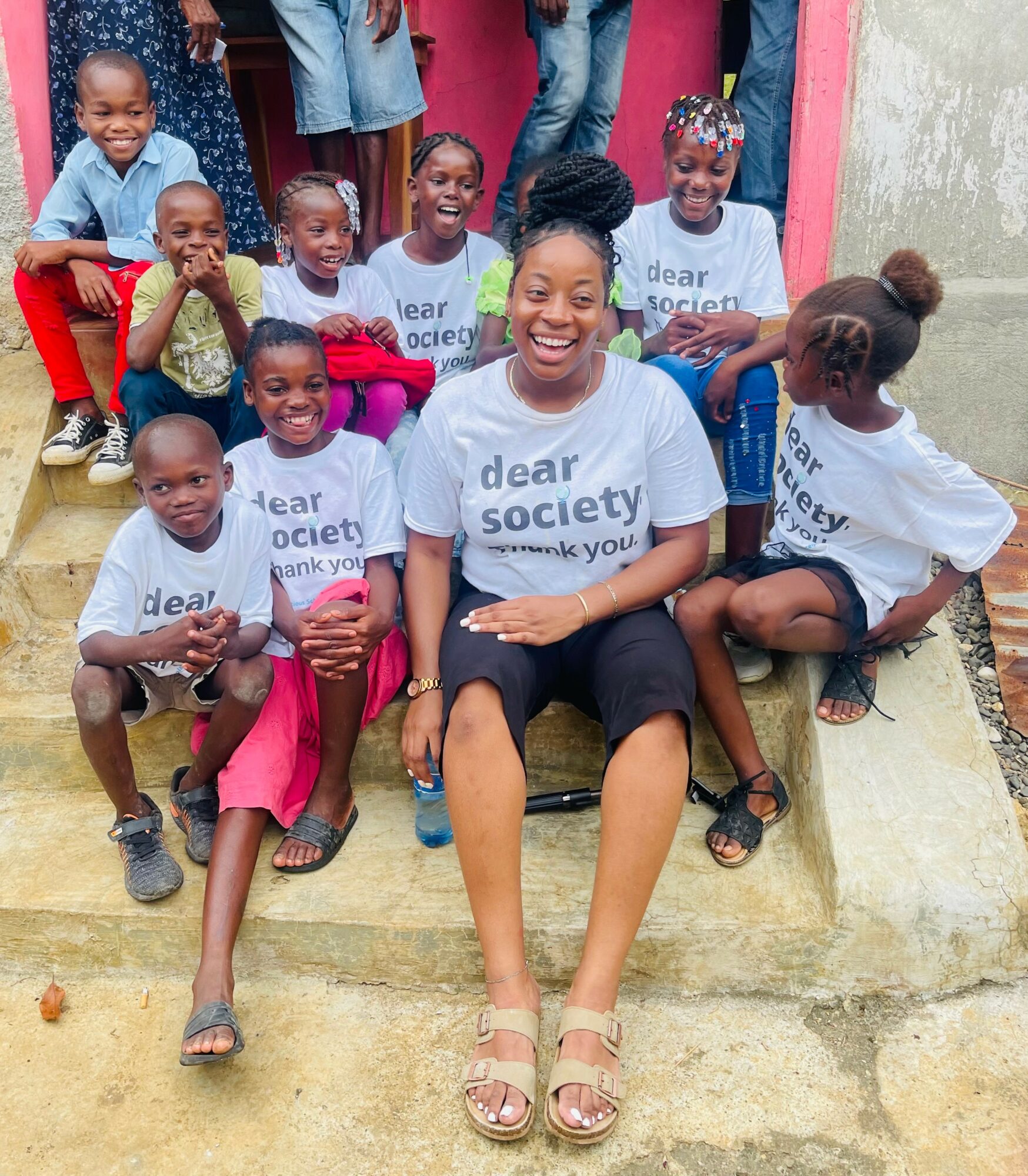Let’s get into it, career, and your success at VISA. What was the turning point for you?
I joined Visa right after graduating from Howard University in Washington, DC, a historically black college and university where I studied business. Immediately after, I became part of VISA’s rotational program—a two-year initiative involving four different teams, each for a six-month period. Two of these rotations significantly influenced my current role. The first was with the Visa Foundation team.
The Visa Foundation is responsible for granting funds and leading impact investments, particularly with micro and small businesses, especially those owned by women. This experience fueled my passion for social impact work and advocacy for equitable access, ultimately leading me to my current position on the global inclusive and sustainability team. Here, I contribute to our global strategy, and I’m grateful for the insights gained during that initial rotation.
The second influential rotation occurred during my last six months on the consulting staff team at the president’s office. In 2021, I delved into the realm of artificial intelligence (AI) ethics, an area about which I had limited prior knowledge. This experience prompted me to advocate for responsible AI practices within the company, collaborating with different departments such as Human Resources (HR) and the legal team. It highlighted the importance of everyone playing a role in fostering a responsible AI conversation.
Currently, I am pursuing my final degree at the University of Cambridge, focusing on ethics and the societal impact of AI. Exploring the global development of AI across different countries is particularly intriguing. My thesis will concentrate on AI in Africa.
A significant focus of our global inclusive and sustainability team is financial education and literacy. Unfortunately, many schools fail to foster conversations about earning, managing, saving, investing, and budgeting money. Therefore, Visa is committed to promoting entrepreneurial education and ensuring that everyone in need can access this crucial content. Currently, we offer four platforms.
The first is ‘Practical Money Skills,’ a free resource covering a multitude of financial literacy topics accessible with internet connectivity. Next, we have ‘Practical Business Skills,‘ tailored for micro and small business owners seeking valuable resources. Additionally, we offer ‘Financial Football’ and ‘Financial Soccer.’ ‘Financial Football’ presents a gamified version of financial literacy, making it both interesting and engaging for our youth.”This is similar to financial soccer, which FIFA sponsors. This is how we intervene in education. We believe that without financial education, you don’t have equitable access to the ecosystem. You have to understand how to manage money, and this gives you a place in the payment ecosystem.
Read also: Children move from grade to grade lacking literacy and numeracy foundation – Ali
At VISA Foundation, what percentage of your grants and aid goes to education, directly or indirectly and other social sector components that you support?
A big focus of our global inclusive and sustainability team is financial education and literacy. Schools don’t stimulate conversation on how to earn, manage, save, invest and budget money. So VISA is interested in entrepreneurial education and ensuring that everyone who needs it can access this content. We have four platforms right now. The first one is practical money skills, which is free. With internet access, you can learn a multitude of financial literacy topics.
We have practical business skills. A resource for micro and small business owners. And then we have financial football and financial soccer. Financial football is a gamified version of financial literacy. This makes it interesting and engaging for our youth.

Credit: VISA
This is similar to financial soccer, which FIFA sponsors. This is how we intervene in education. We believe that without financial education you don’t have equitable access to the ecosystem. You have to understand how to manage money. This gives you a place in the payment ecosystem.
Let’s talk about school. In the global south, what is the scope of your work, a number of countries you are present in and what are you doing?
On the VISA Inside which is separate from the VISA Foundation, we have a lead that leads social impact work and we are present in almost all the countries. You can easily access all our content.
What we also try to do is to partner with organisations that are driving financial education and literacy school networks, and local-led financial literacy movements across the continent.
On the VISA Foundation side, we partner with micro and small business owners who need resources. VISA is there to help you move along. It has been an interesting process to find partners to work with. Our mission is uplifting everyone, everywhere and this is why it is our mission to ensure that everyone has access to our resources, everywhere.
You transitioned from business to AI Ethics. How did you manage this change and what lessons for other women?
My transition into AI ethics stemmed from curiosity. Upon joining VISA, I took on a role in risk, and the rotational teams I mentioned earlier significantly contributed. It became evident that there was an opportunity for me to actively engage in the AI ethics conversation.
The first crucial step was to educate myself. Leadership in any field requires continuous study. This realization prompted me to pursue my master’s program in AI, ethics, and society, marking a profoundly rewarding journey.
During this academic journey, I found myself surrounded by individuals from diverse backgrounds—engineers, lawyers, diplomats, robotics scientists, teachers, and more. This diverse environment enriched my understanding and provided valuable insights into various topics.
Despite the widespread awareness that AI impacts lives, many lack the chance to participate in discussions that highlight how AI shapes society across different sectors. It is our responsibility to disseminate this information widely, providing accurate insights into what AI truly entails. My interest in this field, as a woman, stems from genuine curiosity.
Women in AI ethics are advocates for inclusion. While diversity invites everyone to the party, inclusion asks if they want to participate. Although many companies have a significant number of women, they often aren’t invited to the table for these crucial conversations. Achieving a comprehensive perspective necessitates intentional inclusion where everyone has a unique contribution. The key is to extend an invitation, and once they are in the room, actively listen to their voices.

Credit: Conversations with Natalie
From the panels, do you see the potential for strategy synergy, similar to the kind of partnerships that VISA is driving, such as open classrooms, do we have a similar synergy for education?
I see this as an opportunity to enhance synergy among individuals and organizations in the education space. The program I am a part of includes 13 individuals, all part of the emerging leaders program. Each person brings a different background, but we share a common goal of innovating education and expanding educational opportunities. Imagine the potential if we could establish a global consortium encompassing micro, small, medium, and large organizations. Such a consortium would serve as a platform for collaborative learning, the exchange of key insights, brainstorming ideas, and providing valuable feedback.
A significant aspect of this initiative is global inclusion. My vision for AI ethics revolves around creating opportunities for regulators, academics, corporations, non-profits, and NGOs to collaborate and share their learnings. This collaborative effort is essential in developing ethical AI. By incorporating different voices from various organizations and industries, we gain perspectives that would be otherwise unattainable within individual organizations.
You are back to academia studying AI ethics, what are some of the red flags to pay attention to?
The first is understanding what AI is and what it is not — recognizing its capabilities and limitations. We must be realistic about what AI can achieve and what it cannot. Even technologies like ChatGPT explicitly state they lack emotions or feelings.
There are significant gaps in AI, with potential for growth in the future. However, we cannot blindly allow technology to do everything. We should establish criteria, considering the intent behind its creation or use, its impact, and the data supporting it. Asking these fundamental questions is the first step.
Participation is crucial; otherwise, one risks being left behind. It’s similar to when the internet emerged, becoming a pivotal technology where access was paramount. Similarly, individuals and organizations must actively engage and leverage AI to achieve their goals and objectives.
What has been your WISE 11 experience?
This journey has been truly transformative for me. As a fellow, we’ve spent nine months together, and it has profoundly changed my life. From the moment my colleague nominated me for the program to the interview process, I found myself moved to tears as I passionately spoke about equitable education and how AI introduces new solutions, changing the way people live.
Our journey began in Italy, where we resided in remote cabins, sharing rooms and bathrooms, immersed in the humbling experience of eating Italian food throughout our stay. Transitioning to WISE 11, we engaged in a 2-day session. However, the most crucial questions arose: What do you do with the information? How do you leverage the network of people you’ve built? This experience has fundamentally shifted how I approach making an impact in the world. Hearing from founders and their remarkable initiatives was truly inspiring.
My life’s trajectory was altered by my educational experience. Equitable access to education is crucial for lifelong learning and development.
One striking observation shared during our journey in Qatar was that you don’t fully grasp the importance of education until you are deprived of it. I am making it my life’s mission to ensure that youth have access to education and a comprehensive understanding of AI, including the jobs it creates and the tools it provides. Being part of this summit is a privilege that I don’t take lightly. I am committed to implementing all that I have learned and sharing it with others.












